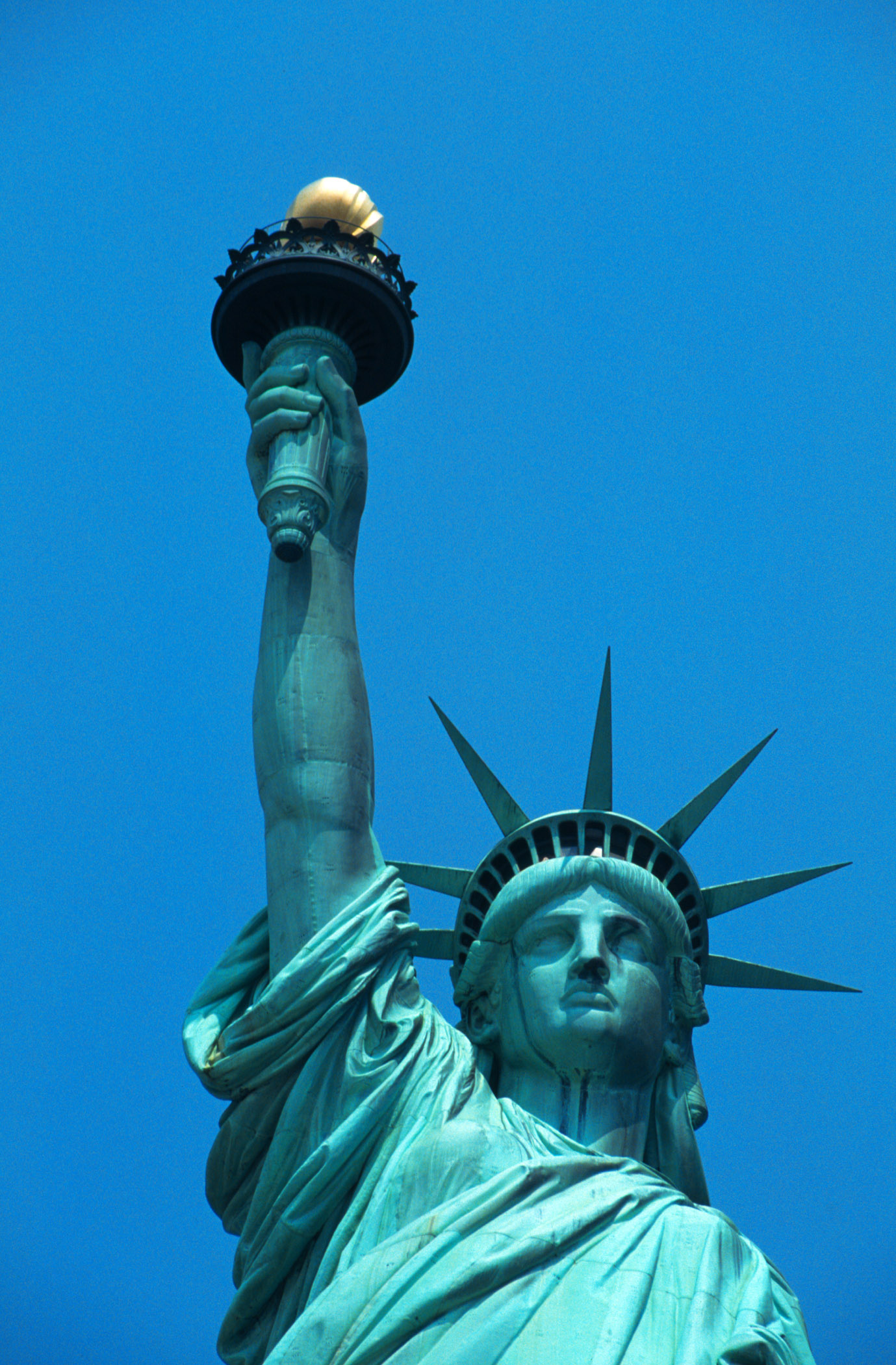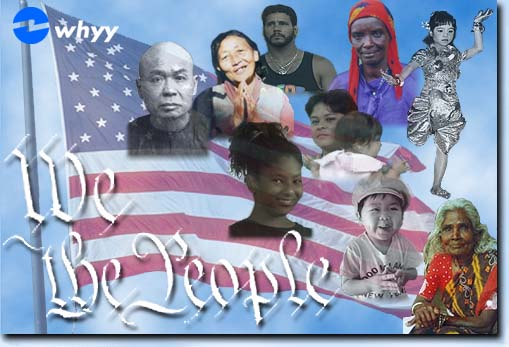|
| |
|
 |
LITR 5731
Seminar in Multicultural Literature:
American Immigrant: model
assignments
2010
 research post 2
research post 2 |
 |
Nathanael Lee
July 9, 2010
Who Is Meagher?
When I was preparing to present a review of the
seminar’s online review of Irish-American literature, I came across a song
transcribed by John Poole
titled, “No Irish Need Apply.” The song essentially details a potential account
of someone who encountered prejudice in an ad (which read, “No Irish Need Apply)
and responded violently in the name of justice. In it, I came across the line,
“Now old Ireland on the battle field a lasting fame has made; / You all have
heard of Meagher's men and Corcoran's brigade / Though fools may flout and
bigots rave, fanatics they may cry, / But when they want good fightin' men the
Irish may apply.” (Donohue) The article had been discussing the trials and
tribulations of the Irish in
America. So I wondered: who is Meagher, and
what is his immigrant story? In a quick glance at Wikipedia for some basic
information, I quickly found out that Meagher is a great figure in Irish history
and culture. According to it, he is the man who went to study revolutionary
events in France
and returned to Ireland
carrying what would become the new Flag of Ireland. He would be tried for
sedition, only to have his sentence commuted by the crown and be sent to the
prison colony in Australia.
He would then escape to
America, where he would serve proudly in the
union army. The more I read of his story, the more interest I had in his
character, which leads to this research post.
I started my search with the UHCL library website. I
found an article that interested me called, “Thomas Francis Meagher’s Bar Bill”
by Elliott West. In it, some of Meagher’s history is fleshed out. According to
the article, Meagher resisted British rule of
Ireland. He became leader of Young Ireland, “a
revolutionary faction calling for violent resistance to British rule.” (West,
18) This part of his story has similarities to
America, which violently resisted British rule
as well. However, Meagher is sentenced to death for being a traitor to the
crown. Instead, because Meagher was so charismatic and the public fought so hard
for him, the crown was forced to commute his sentence to life in exile. He was
sent to Van Diemen’s Land (Tasmania) in Austrailia
where, according to West, he spent two years of his life before taking a rowboat
and escaping. Later, according to West, Meagher is rescued from a desert isle
and brought to America,
identified as a celebrity and a martyr to freedom, an ideal immigrant. According
to West, “During the next nine years, he founded and edited the Irish News,
lectured from New Orleans to San Francisco, quarreled with the Catholic Church,
opened a law office, dabbled in a Costa Rican railroad scheme, and horsewhipped
an editor.” (West, 18.) These events present an interesting view of the man.
Being Irish, he was both a credit to his heritage and a disgrace to it. He
brought information to the Irish and to the masses. He fought against the
religion of his heritage, founded several businesses, engaged in some unlawful
acts, and, evidently, couldn’t hold his temper when it came to the editor,
likely in his employ. However, this history is not the real meat of the article.
The article continues to describe his impromptu governorship of Montana. Meagher becomes
secretary of the Montana
territory because President Andrew Johnson offers it to him, a sign of his fame
and an indication of his influence. Meagher goes from castaway to major
publisher and secretary of the
territory
of Montana.
His story is truly a fulfillment of the American Dream. Governor of Montana, Sidney Edgerton, quits. Meagher
becomes his replacement. West continues, “In 1865, territorial politics was a
treacherous tangle. Meagher owed his job to Johnson, like himself a unionist
Democrat, but he also had to deal with a Congress run by radical Republicans
battling with the president while at home he ruled over an electorate swollen by
Southern Democrats who had fled to the gold fields as the war wound down.” This
sets the scene for West’s article. The article is about analyzing Meagher’s bar
bill. It is a random article unearthed from the Montana Historical Society. It
is a ledger from an unidentified saloon appeared to have been visited by Meagher
regularly during a legislature convened by Meagher himself. This ledger is
examined by West thoroughly. He writes, “On many days he charged only a meal or
two, washed down perhaps with some beer or wine. On others, his table groaned
with food and a variety of potables. This ebb and flow suggests that Meagher was
using this liquor for another purpose-to lubricate the machinery of government.”
(West, 21) This is interesting to me. West provides a photo of the bill that
seems to corroborate his idea. Meagher is often portrayed as a drunk, but it
appears that, even if he did do so, he did so socially and with the specific
intent of furthering his cause. It tells me that Meagher knew how society worked
and he worked hard to get what he wanted or needed. I also found this
interesting because Wikipedia had informed me that there were accusations that
Meagher was drunk in the line of duty. The source states,
During the battle, Meagher was injured when he fell off his
horse. There were reports that Meagher had been drunk, causing the fall.
However, official reports from Maj. Gen. George B. McClellan indicated that
Meagher's horse had been shot. This was not the first time that Meagher faced
this accusation, as it was falsely reported that he was drunk at the First
Battle of Bull Run. (Wikipedia)
That the Irish are drunkards is a standard prejudice towards
the immigrants. According to Stacy Lee Donahue, who wrote the review of
Irish-American literature, “[T]he British had exported an anti-Irishness that
was seen in American newspapers and magazines […] in the form of Irish
stereotypes: the alcoholic, baboon-like figure who cries in his beer while
singing a ditty, for example.” This is a perfect example of the kind of
stereotyping Meagher faces. According to West’s article, the drunkenness seems
to be purely intentional, for the purposes of lubricating the gears of
government.
It may turn out that the reason Meagher raised an
Irish brigade is because of the other man mentioned in the song: Michael
Corcoran. According to Paul R. Wylie, “Michael Corcoran, leader of the New York
Fenians and colonel of the 69th New York Militia, convinced Meagher that service
in the Federal Army would create a force of Irish veterans who could eventually
wrest Ireland away from British control.”
(Wylie) This quote leads me to believe that Meagher, though an immigrant firmly
ingrained into the politics of America, still wished to improve Ireland’s state
of affairs and that his work as a civil war general was specifically meant to
change the world and help his home country achieve independence. It puts Meagher
in an entirely different perspective for me. I figured that perhaps Meagher was
fully integrated into American society and that he was working to help
Ireland
by helping its immigrants abroad. If Meagher was still working to help his
homeland, then Meagher begins to have dual agendas and must be continually
analyzed in the form of the exiled hero, who fights the good fight elsewhere, if
I should continue to read about him in the future. It also implies that Corcoran
is tied to Meagher and that he is important to the character of Meagher as well.
In the end, Thomas Francis Meagher is a man of
upstanding character who did much to better the lives of the Irish and the Irish
immigrants. He came from nothing, rescued from a deserted island, and worked his
way up in the world, owning his own newspaper and becoming a general in the
Union army. He faced all kinds of prejudice and hardships, including being
considered a drunk. If I were to continue studying this, I would find a few
books and get as deep into his history as I could, learning as much about him,
from start to finish, as possible. I would expand my knowledge about his
beginning, his civil war career, his newspaper, his work as governor of Montana, etc.
Works Cited
Donahue, Stacy Lee.
"Irish." American History Through Literature.
Ed. Janet Gabler-Hover and Robert Sattelmeyer. Gale Cengage, 2006. eNotes.com.
2006. 9 Jul, 2010 <http://www.enotes.com/american-history-literature/irish>
"Thomas Francis Meagher."
Wikipedia, the Free Encyclopedia. Wikipedia. Web. 9
July 2010.
<http://en.wikipedia.org/wiki/Thomas_Francis_Meagher#Irish_Confederation>.
Welsh, Richard F. "The Irish General: Thomas Francis
Meagher." Civil War Times
47.4 (2008): 60. EBSCOhost.
Web. 9 July 2010.
<http://search.ebscohost.com/login.aspx?direct=true&db=a9h&AN=32651462&site=ehost-live>.
West, Elliott. "Thomas Francis Meagher's Bar Bill."
Montana:
The Magazine of Western History 35.1 (1985): 16-23.
JSTOR. Web. 9 July 2010.

|


